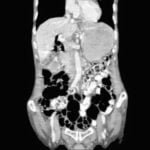2 mins read
Intermittent Fasting: Methods and Advantages
Intermittent fasting (IF) is an eating pattern that cycles between periods of fasting and eating. It does not prescribe specific foods but rather focuses on when to eat. This approach has gained popularity for its potential health benefits, including weight management, improved metabolic health, and longevity.
Methods of Intermittent Fasting
There are several popular ways to practice intermittent fasting:
- 16/8 Method (Time-Restricted Eating)
- Fast for 16 hours and eat within an 8-hour window.
- Common approach: Skipping breakfast and eating between 12 PM – 8 PM.
- 5:2 Method
- Eat normally for five days a week.
- On two non-consecutive days, consume only 500–600 calories.
- Eat-Stop-Eat
- Involves a full 24-hour fast once or twice a week.
- Example: Eating dinner at 7 PM and fasting until 7 PM the next day.
- Alternate-Day Fasting
- Alternates between normal eating days and fasting or very low-calorie intake days.
- OMAD (One Meal a Day)
- Eating all daily calories in a single meal and fasting for the rest of the day.
- The Warrior Diet
- Consuming small amounts of raw fruits and vegetables during the day and eating a large meal at night (within a 4-hour window).
Advantages of Intermittent Fasting
1. Weight Loss and Fat Loss
- Reduces overall calorie intake and boosts metabolism.
- Promotes fat-burning by lowering insulin levels and increasing fat oxidation.
2. Improves Insulin Sensitivity
- Helps regulate blood sugar levels and reduces the risk of type 2 diabetes.
3. Enhances Cellular Repair and Longevity
- Stimulates autophagy, a process where cells remove damaged components, potentially reducing aging and disease risk.
4. Supports Heart Health
- Lowers blood pressure, cholesterol, and inflammation markers, reducing the risk of cardiovascular diseases.
5. Boosts Brain Function
- May improve cognitive function and protect against neurodegenerative diseases like Alzheimer’s.
6. Reduces Inflammation
- Decreases oxidative stress and inflammation, which are linked to many chronic diseases.
7. Simplifies Meal Planning
- Reduces the need for frequent meals and snacks, making it easier to maintain a healthy diet.
Considerations and Precautions
- Not suitable for everyone (e.g., pregnant women, individuals with eating disorders, or those with certain medical conditions).
- Hydration is essential during fasting periods.
- It’s important to consume nutrient-dense foods during eating windows to avoid deficiencies.
Join the mailing list!
Get the latest articles delivered right to your inbox!

